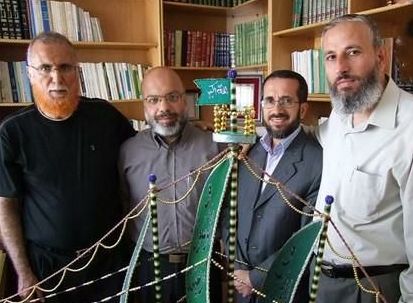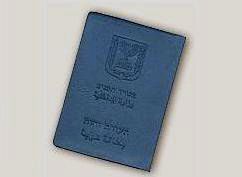Q&A: Law to Revoke Citizenship and Permanent Residency and Deport Palestinians Who Received Money from the Palestinian Authority in Relation to “Terrorist Acts”
CLICK HERE to read the Q&A in a PDF format
CLICK HERE to read an unofficial translation of the bill
What does the proposed bill entail?
The law introduces two similar amendments to the Entry Into Israel Law 5712-1952 and the Citizenship Law 5712-1952. These authorize the revocation of permanent residency or citizenship of an individual who was convicted of an offense that constitutes an “act of terrorism” as defined by the Counter-Terrorism Law (2016) or other offenses as defined in articles 97-99 of Israel’s Penal Law, has been sentenced to prison, and, according to the interior Minister, received monetary benefits from the Palestinian Authority in relation to “a breach of loyalty to the State of Israel”. The Law further amends the existing track of revocation of citizenship based on “breach of loyalty”, as will be detailed below.
It should be noted that on 15 February 2023, the Knesset approved another bill, in a preliminary reading, aimed at deporting the families of “terrorists,” that MKs from both the coalition and opposition voted in favor of.
What happens to a person whose citizenship or residency is revoked?
If an individual’s citizenship or residency is revoked under the law, they will be expelled to the territory of the Palestinian Authority or to the Gaza Strip.
What is the current track for revocation of citizenship?
The current track authorizes a court of administrative affairs, at the request of the Interior Minister, to revoke the Israeli citizenship of persons who have “committed an act that constitutes a breach of loyalty to the State of Israel”.[1] The term “breach of loyalty” is defined in an overly broad manner to include, among others, any “act of terror,” assistance or solicitation thereof, or “taking an active part” in a “terrorist organization”, in accordance with the Counter-Terrorism Law, which employs terms that are ambiguous and overly broad.[2] Read more Q&A: Israeli Supreme Court allows government to strip citizenship for ‘breach of loyalty’
Has the court upheld the legality of revocation of citizenship?
The Israeli Supreme Court upheld the constitutionality of the current track (Article 11(b)(2) of Israel’s Citizenship Law), even if the person whose citizenship has been revoked is rendered stateless, contrary to international law. However, the court limited the Interior Minister’s discretion under Article 11(b)(2), based on guidelines provided by the Ministry, and held that the said article is reserved for exceptional cases. The Court also held that the Interior Minister must grant a person whose been rendered stateless a permanent residence permit.
How does the law amend the current track for revocation of citizenship?
The new law not only introduces a new avenue for the revocation of citizenship, but also amends the existing track (Article 11(b)(2)). One significant change is that the amendment relieves the Minister of his responsibility to grant a residency permit to someone who has been rendered stateless due to the revocation of their Israeli citizenship and has “permanent status in the territories of the Palestinian Authority”. As a result, under the amended track, Palestinians who have had their citizenship revoked face a risk of statelessness and expulsion from their ancestral homeland.
What is the current track for revocation of residency?
The current track (Article 11A of the Entry into Israel Law, 5712-1952) allows for the revocation of residency – namely, East Jerusalem permanent residency holders – based also on “breach of loyalty”, which grants the Interior Minister broad discretion.[3] Such revocation also results in expulsion unless the person is not eligible to receive residency in any other territory.
Does this bill replace the existing revocation processes?
No. This bill provides an additional pathway for the state to revoke citizenship or permanent residency.
Who does the bill apply to?
The bill will apply to both Palestinian citizens of Israel and residents of East Jerusalem.
Under which grounds can the state revoke a person’s residency/ citizenship?
The bill applies to individuals convicted of offenses that the court determined constitute an “act of terror”, in accordance with its definition under Israel’s 2016 Counter-Terrorism Law and sentenced to imprisonment (read more: Adalah’s Position Paper: Israel’s 2016 Counter-Terrorism Law). This term is ambiguous and overly broad and includes a wide range of offenses such as “harm to property”, and “harm to religious objects” or even a threat to commit such harm, so long as they are committed for nationalistic or ideological motives.[4] Other offenses under the proposed bill include the “impairment of sovereignty or integrity of the State” and “assistance to an enemy in war” (see Articles 97-99 of Israel’s Penal Law).
Who decides if someone’s citizenship/residency is revoked under the new bill?
The decision to revoke a person’s citizenship/residency lies at the discretion of the Minister of Interior. If it is proved to the satisfaction of the Minister of Interior that the person has received payment from the Palestinian Authority for committing the act, then:
- In the case of citizenship revocation – the Minister must then file a request to a court for the revocation of citizenship, after seeking the approval of the Minister of Justice, that shall not be refused unless under “exceptional circumstances”.
- In the case of residency revocation – the Interior Minister decides to revoke one’s residency, after obtaining the approval of the Justice Minister, and does not have to seek any court approval for their decision.
Will this bill apply to people who will become stateless as a result of the revocation of their citizenship/residency?
Yes. The bill does not provide for any protections for persons who will become stateless as a result of Israel revoking their citizenship/residency, a policy that was previously approved by the Supreme Court in the Zayoud case.
Why is this law racist?
This bill seeks to further expand Israel’s longstanding policy of establishing two separate legal tracks based on racial identity, as the state designed this measure to be used exclusively against Palestinians. The law targets exclusively Palestinians, as evidenced in both the wording of the bill – which specifically references the Palestinian Authority, as well as in statements made by various members of Knesset in the discussions concerning the bill. For instance, MK Hanoch Milwidsky stated in this context: “I prefer Jewish murderers to Arab murderers and as a general rule in the Jewish state I prefer Jews to disloyal Arabs here.”[5] This separate track of expulsion for only Palestinians is even more egregious, because it expels Palestinians from their homes and homeland and separates them from their families.
What does international law say about revoking citizenship/residency?
Regarding citizenship: International law considers the right to citizenship to be a fundamental human right and prohibits the arbitrary deprivation or revocation of citizenship in cases where such deprivation would render the person stateless (See, e.g., Article 15 of the Universal Declaration on Human Rights[6], Article 8 of the Convention on the Reduction of Statelessness[7], and 2003 Concluding Observations on Israel by the Human Rights Committee[8]).
Regarding residency, such revocation based on ‘breach of loyalty’ violates East Jerusalem residents’ rights under international law as an occupied people. According to a U.N. Committee report: “The requirement of ‘loyalty to the state of Israel’ is not only a violation of international humanitarian law, which prohibits the imposition of ‘allegiance to the hostile power’[9], but also violates other international human rights law obligations, including the right to freedom of opinion and expression and the prohibition of discrimination on political grounds.”[10]
Revocation of both citizenship and residency also violates rights – under both international humanitarian law and international human rights law – to be free from deportation[11] and displacement.[12]
[1] Article 11(b)(2), Amendment to the 1952 Citizenship Law.
[2] See definitions in Article 2(a) and Article 10 of the Counter-Terrorism Law.
[3] Note that the Supreme Court has not yet ruled on the legality of this policy.
[4] The law has faced substantial international criticism, including from the UN Human Rights Committee’s 2022 Concluding Observations on Israel, numerous UN experts, and the American Bar Association, among many others.
[5] Haaretz, Israeli Lawmaker Says He 'Prefers Jewish Murderers to Arab Ones' in Debate Over Revoking Terrorists' Citizenship, 9 January 2023.
[6] United Nations, Universal Declaration of Human Rights, Article 15, “(1) Everyone has the right to a nationality; (2) No one shall be arbitrarily deprived of his nationality nor denied the right to change his nationality.”
[7] United Nations, Convention on the Reduction of Statelessness (1961), Article 8, “(1) A Contracting State shall not deprive a person of his nationality if such deprivation would render him stateless.”
[8] UN Human Rights Committee, Concluding Observations: Israel, 21 August 2003, CCPR/CO/78/ISR, “(22) The Committee is concerned about the criteria in the 1952 Law on Citizenship enabling the revocation of Israeli citizenship, especially its application to Arab Israelis. The Committee is concerned about the compatibility with the Covenant, in particular article 24 of the Covenant, of the revocation of citizenship of Israeli citizens. The State party should ensure that any changes to citizenship legislation are in conformity with article 24 of the Covenant [on Civil and Political Rights].”
[9] Prohibited by Article 45 of the Regulations concerning the Laws and Customs of War on Land (Hague Regulations) and Article 49 of the Fourth Geneva Convention.
[10] Report of the Special Rapporteur on the promotion and protection of the right to freedom of opinion and expression, A/HRC/20/17/Add.2, 6 December 2011; see also UN Human Rights Committee, Concluding observations on the fifth periodic report of Israel, CCPR/C/ISR/CO/5.
[11] See, e.g., Geneva Convention IV, Article 49(1) and Article 147
[12] See, e.g., Art. 13 of the UN Declaration on Human Rights; Art. 12 of ICCPR; and Art. 5(d)(i) of ICERD.


















